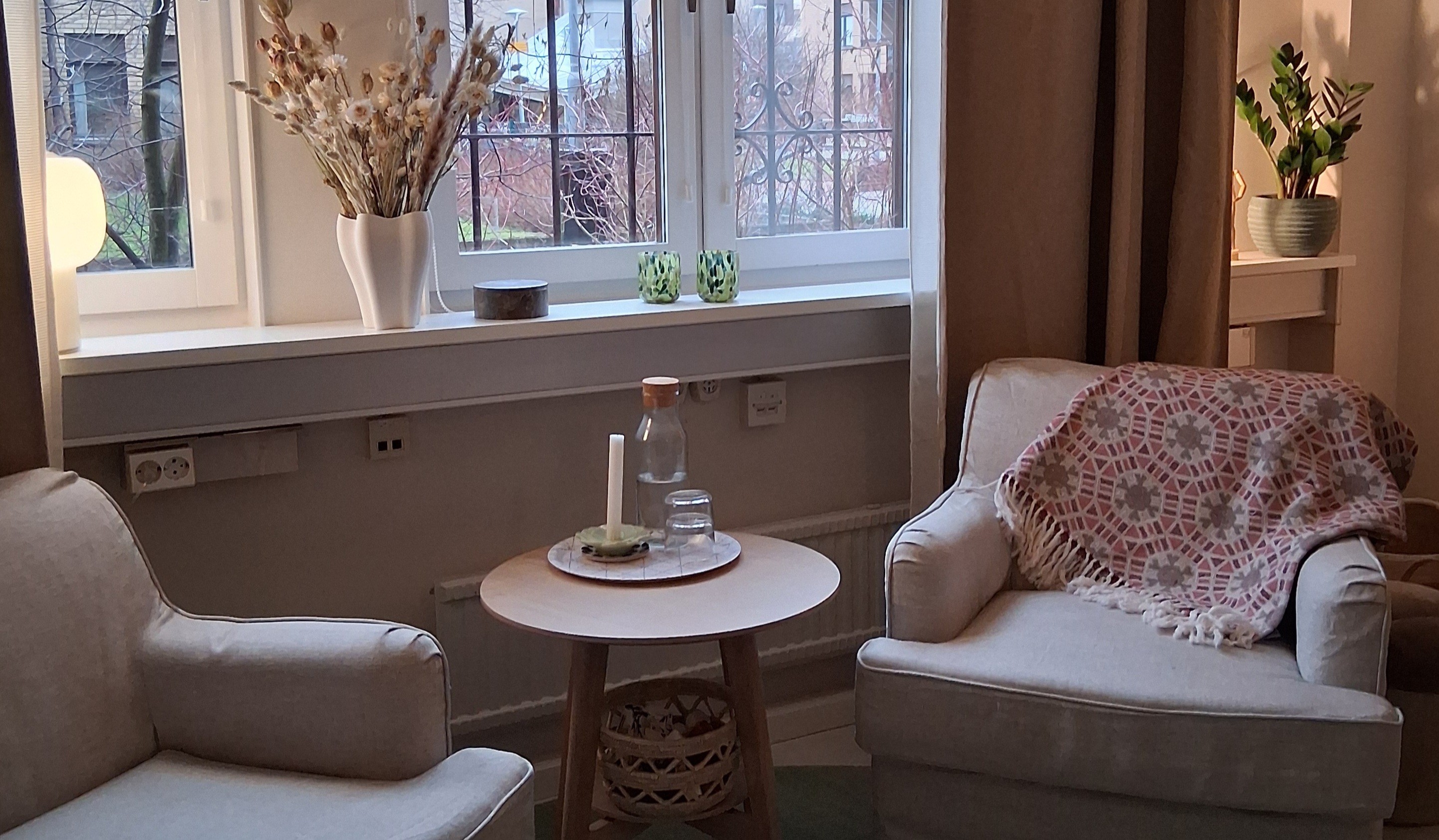Consultations
Every now and then in life, one might need someone to talk to and get support from. Sometimes the people around us are enough, but sometimes more support is needed. Perhaps one has a problem that is difficult to understand or is carrying feelings that become difficult to bear alone. Perhaps a change in life has led to a crisis, or a loved one has been affected by ill health/disease. These are some examples of when one can seek help from a psychologist for supportive consultations. A psychologist has a broad knowledge of human behavior and can provide tools for management and change.
The number of supportive consultations we set up is based on your wishes and needs.
Psychotherapy
A longer psychotherapy contact usually begins with some assessment conversations where you get to describe what you need help with.
Do you struggle with stress, exhaustion, perfectionism, or low self-esteem?
Do you experience anxiety, worry, or sadness — feeling down without knowing what to do to change it?
Are you facing difficulties in your relationships — within your family, at work, or among friends?
Do you live with physical pain, chronic illness, the effects of aging, or other bodily symptoms that you need support managing in everyday life?
Have you gone through something difficult or traumatic that still affects you and feels limiting in your life?
These are examples of issues I commonly work with in therapy as a psychologist.
Together, we explore the areas that are challenging for you — where they began and what might be keeping them going today. It can feel hard to open up at first, to talk about yourself and your struggles. My goal is to offer a safe and supportive space where you feel seen, heard, and understood.
We create a plan together for what we want to focus on in our work. The process and approach are always tailored to your individual needs and preferences. We may use methods from Cognitive Behavioral Therapy (CBT) or Acceptance and Commitment Therapy (ACT), which can include elements such as mindfulness and exercises between sessions. I also offer Psychodynamic Therapy (PDT), when that’s a better fit for the issues at hand.
Through our work, you’ll gain a deeper understanding of yourself — your feelings, your needs, and your inner patterns. You’ll learn to better listen to your body’s signals and how to respond to them with care. You’ll be supported in finding new tools to change unhelpful behaviors and to move toward a life that feels more balanced, sustainable, and aligned with your health and well-being.

About the CBT/ACT and PDT method
We humans have a lot of strategies to handle difficult emotions and situations. In CBT, we map out which of these are helpful and which are not so helpful for us. We are often driven by avoiding discomfort in the moment because we believe it is good for us. In CBT, we gain insight into problematic behaviors/avoidance and learn to understand thoughts, feelings and to change behaviors with a focus on what is instead more long-term sustainable for us.
ACT involves a more philosophical approach focusing on what is meaningful and important to us and how we want to be as human beings. We try to approach what causes us suffering with an accepting attitude, so we don't have to "fight" it to such a great extent. Based on the actual conditions that prevail (mental, physical, social, economic etc.), we practice directing our attention and taking steps towards what makes us feel better and what enables us to live the life we desire.
The length of CBT/ACT treatment can vary depending on the focus and nature of the difficulties. These approaches are generally considered short-term therapies, and a typical course often includes between 5 and 20 sessions.
Psychodynamic therapy (PDT) sessions have a more exploratory nature. Together, we look into your inner world — thoughts, emotions, and patterns — with the aim of deepening your self-understanding and encouraging reflection. This process supports a greater awareness of your feelings, needs, motivations, and relationship patterns.
The theoretical foundation is largely based on attachment theory, with a focus on the role of emotions and relationships in healthy psychological development.
Through new insights and emotional experiences in therapy, it becomes possible to develop new behaviors and lay the foundation for more secure and meaningful relationships in life.
The length of psychodynamic therapy also varies depending on the issues being addressed. Short-term psychodynamic therapy is often estimated to involve around 20 to 40 sessions, but it may extend beyond that if needed.
